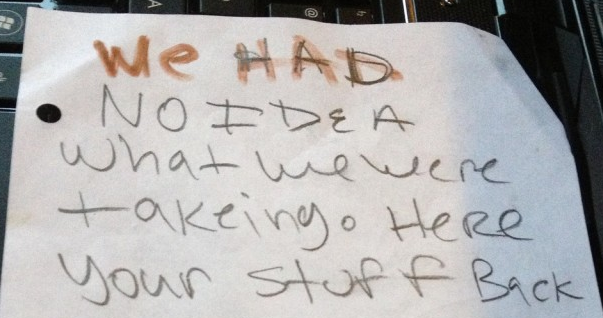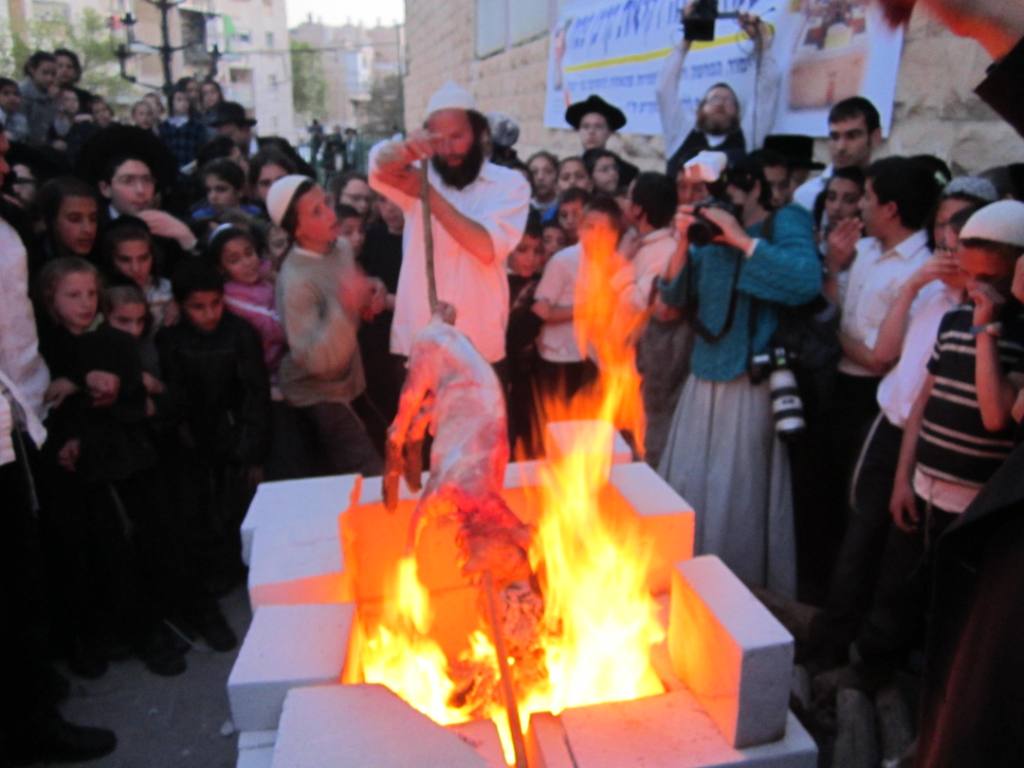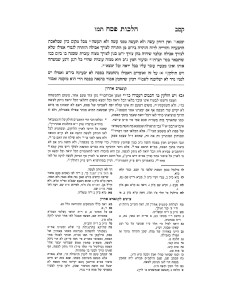Makos 15a
A- The Gemara were are learning is admittedly a bit complicated.
Here is a simple outline:
1- A Lo Sa’ase transgressed brings Malkus.
Example: Wearing Shat’nez.

2- A Lo Sa’ase with correction: A Lo Sa’se transgressed that the Torah allows for a correction (in the form of an E’se – a positive commandment), “teshuvah”, there is no Malkus if the remedy allowed is actually performed.

Example: Stealing is a Lo Sa’ase. Returning the loot is a Mitzvas E’se. Meaning that one can return the stolen object performing the E’se and rectifying the Lo Sa’ase of stealing.

Thus there is no Malkus if he returns it.

How much time does one have to remedy the LoSa’ase ? [See below in different words and its connection to Pesach] –
In our example – how much time is one given to return the stolen property?
That is argument between Reb Yochanan and Reish Lakish:
Reb Yochanan says that he has as long as one wants- provided that he is indeed able to remedy it.
Once the possibility is gone, he gets Malkus.

Example: Finishing eating the Korbon Pesach until the morning. The Lo’Sa’ase is not to allow any potion of the Korban uneaten.
If one does leave some pieces he is given the next day to burn it. That is an E’se.
But once the next day passes and he does not burn it, is too late and he gets Malkus.

Reish Lokish argues and says that one is not given much time at all. Rather, after one transgresses a Lo Sa’ase, Beis Din calls him for a hearing and tells him: Either you remedy it immediately (i.e. return the stolen property) or we will give you Malkus.
In this category one cannot perform the “correction” before the transgression. One can obviously not return stolen property before stealing it.
3- This is the tricky one. A Lo Sa’ase and an E’se. But the E’se can and/or must be performed with out transgressing the Lo Sa’ase.
Example: A fire must always be lit on the Mizbeach. That is an E’se.
Extinguishing it is a Lo Sa’ase.

This E’se can and must be preformed prior and without any connection with the prohibition of extinguishing it.
On the other hand it can also be performed after one extinguishes it.
So here is the dilemma – does this E’se rectify the Lo’Sa’ase?
Someone that extinguishes the Mizbeach fire -transgressing a Lo Sa’ase – but then reignites it performing an E’se. Does his second action rectify the first?
That is what original saying of Reb Yochanon was all about.
——–
More examples of ruining the ability to correct the Lo Sa’ase:
1. A Kohen rapist who divorces his wife cannot remarry her.
2. A non-Kohen rapist who divorces his wife then makes a vow not to have anything to do with her
3. Removing the bird’s eggs while the mother is hovering above them. He can avoid getting Malkus by sending away the mother now. But if the mother dies then he in unable to correct the Lo Sa’ase

B- In this week’s Gemara we learned about in interesting Machlokes which also has to do with Hilchos Pesach.
Everyone agrees that if a person rectifies the Lo’Sa’se with an E’se he does not receive Malkus.
For example, if someone steals and later returns according to all opinions he is exempt from malkus.
The question is how long does a person have to rectify his actions?
In other words when does Beis din determine that this person is never going to do Teshuvah and we can give him Malkus right away?
There are two opinions:
- Bitlo ve’Lo Bitlo, A person always has the capability of fixing the Lo’Sa’se as long as he lives, and as long as it is possible for him rectify it. (For example if he steals from a Ger and he dies then according to everyone he cannot fix it)
- Kiymo ve’lo Kiymo, a person must fix his Lo’Sa’se right away. As soon as Beis Din finds out that he transgressed this Lo’Sa’se he must fix it immediately or be subject to lashes (this is Rashi’s version)
The Halacha is is Kiymo ve’lo Kiymo.
Based on this the Alter Rebbe brings a very novel idea in the name of the Magen Avraham in Hilchos Peisach:
Hilchos Pesach seferid_25074_page_173
What happens if someone finds Chametz in house on Pesach? Generally, it is not such a big problem because since he did the Bittul before Peisach the Chametz does not belong to him.
However what happens if someone by accident makes new Chametz on Pesach, in this case we have a problem because the Bittul that you did before Peisach does not apply, this is brand new Chametz.

The Magen Avraham suggests something interesting based on the Gemara in Shabbos:
The issur of Chametz on Pesach goes into the category of an Aveirah that the Torah allows for a correction to be done (Lav Hanitak L’E’se); there is an Issur of B’aal Yeraeh and B’aal Yimatzeh and there is the correction of Tashbisu (destroying it).
Based on the Halacha Kiymo ve’lo Kiymo it is possible that as long as he has in mind to burn the Chametz he is not going to transgress the Lav because he can always correct it.
Therefore the Magen Avraham suggests not to touch the Chametz (assur b’hanaah and muktzah) which was formed on Pesach, rather just have in mind that you are going to burn it and you will not be oveir on B’aal Yeraeh and B’aal Yimatzeh.
Despite the great admiration the Alter Rebbe had for the Magen Avraham in quoting him constantly, in this particular case he omits his suggestion and in the Kuntras Achron gives two reasons why:
- The suggestion only works for the first days of Pesach. However on the last day he must burn it right away. This is because if he waits until after Pesach, and according to everyone he cannot correct the Lo’Sa’se.
- (This is brought in a footnote) The issur of having Chametz on Peisach is 1. B’aal Yeraeh 2. B’aal Yimatzeh. However the correction is only 1. Tashbisu. Therefore although The E’se can cancel out (ONLY) one of the Lo’Sa’ses you are still left with another which you will transgress right away.
http://beta.hebrewbooks.org/pdfpager.aspx?req=25074&st=&pgnum=173

Since Ese is doche Lo Seeseh, it would make sense that we should have a mitzvah to steal a little bit so we can fulfill the mitzvah of returning it.
Like before על חטא where some have a custom to do a little aveira